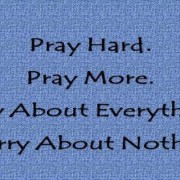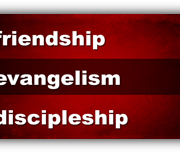Know when to hold em, Know when to fold em
I know that I am Jersey boy. I also know that guys from New Jersey don’t do country music. There is nothing wrong with country. But New Jersey is the home of Bruce Springsteen, Frank Sinatra, Bon Jovi and Skid Row. Not Kenny Rodgers. But everyone knows that classic song, The Gambler. The Gambler needs to know when to hold and when to fold. He needs to know when to walk away and when to run. Never count your money when you’re sitting at the table. The Gambler knows that there will be time enough for counting when the dealings done. You know the song.
This song speaks to me as a minister. In many ways, an aspect of the ministry that I have done is to be a type of a spark plug. I have been blessed to see many things start up. A church in New Brunswick, NJ. A church in Mill valley, CA. A church in San Francisco, CA. I’ve been blessed to see these ministries birthed and transitioned into new leadership. The hardest part of this is wondering what would have happened had you stayed where you were. In some ways, doing ministry is like gambling. You sense a leading from the Lord and you act upon what you understand the confirmations to be. You can see what God has done on your new step. But you often wonder what would have been had you stayed put. Sometimes I wonder if I have ministerial ADD. Sometimes ministers are ministerially catatonic. Either way, the key is to be where God is asking you to be.
I have also seen some great ministries started. The Calvary Church Planting Network has a project of mine. Wanting to church planters not have to recreate the wheel but have simple mentorship in the process. Just last month, CCPN had their first large conference and God is using it in a major way. I got the thing going and then others took it to the next level. What a joy for me to see God at work. Since being here at Crossroads in the last 11 months I have gotten to launch both a School of Ministry and a Married’s Ministry and handed them off to other pastors to run with. So awesome!
The CrossConnection Network blog is another one of those ministries. What began as a few conversations with my good friend Miles DeBenedicis about starting a collaborative blog turned into this site. We wanted a blog where people were free to explore ideas about life in Christ and ministry. We wanted contributors who had unique voices. Sure the masses enjoy the same old trumpeted sounds but innovation happens where people cringe and get upset. We are good with that. While some aren’t. We are okay with that too. What is awesome is that over last few years, we have watched CrossConnection blossom into a significant site with a really large audience. And a continuing growing audience. We have seen some of our contributors begin to blog for other sites. Awesome! We’ve seen some of our contributors quit blogging altogether. Again, God’s will be done. It is time for me to step away though. Not because I do not love CrossConnection. I do. But because, at this time, my work here is done. Starting it up was part of my roll and now it is time for others to take it to the next level. I will be watching with joy. But this will be my final article.
As for me, I will be focusing on the next set of things that God has in front of me. So if you think of me, please pray for me. I want to be the best husband and father in the world. We are finishing up the leadership transition here at Crossroads in Vancouver, WA in the coming months. God is doing amazing things here. God has tremendous things in store for Crossroads and we are just beginning to understand what the future will hold. Wild and exciting. We are seeking to reach out to the next generation with the Viral Movement with our first warehouse concert/crusade this Friday. I am working with an amazing literary agent and working on the manuscript for my next book (and am humbled by the interest from some big publishing houses). If you have ever written a longer work, you know the energy and diligence that that takes. On top of that, I have been blessed to be invited to do a bunch of conference teaching in the upcoming year. My own website has been growing as well. So I need to focus on all of this.
I wanted to thank you all for letting me add my ideas to this blog. I have been assured that I can submit articles from time to time. But at this time, I guess it is time for me to pull back from the table and let the dealing be done. Blessings!










